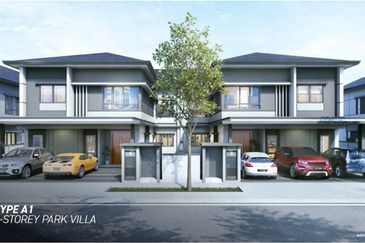
- Fiamma announced that its chairman Datuk Bahar Ahmad, 72, and Lim, 64, have resigned from their respective positions, effective immediately.
KUALA LUMPUR (Sept 27): Chin Hin Group Bhd’s founder and executive chairman Datuk Seri Chiau Beng Teik (pictured) has added another feather to his cap with his new appointment as non-executive chairman of electrical home appliance distributor Fiamma Holdings Bhd, effective immediately.
Beng Teik, 60, is also currently executive chairman of Ajiya Bhd, as well as non-independent non-executive chairman of Chin Hin Group Property Bhd and Signature International Bhd.
Chiau Haw Choon, the son of Beng Teik, has also been appointed as executive director (ED) of Fiamma. Haw Choon, 38, is currently the group managing director of Chin Hin Group and Ajiya, as well as ED of Chin Hin Group Property and Signature.
In May, Beng Teik and Signature International Bhd had emerged as the largest shareholders of Fiamma, after acquiring a combined 29.59% equity interest in the company from Fiamma’s chief executive officer and managing director Lim Choo Hong for RM225 million or RM1.50 per share. Beng Teik holds a 32.5% indirect stake in Signature.
In separate bourse filings on Monday (Sept 26), Fiamma announced that its chairman Datuk Bahar Ahmad, 72, and Lim, 64, have resigned from their respective positions, effective immediately.
In another filing, Fiamma said Beng Teik has over 45 years of working and management experience in the building materials industry. “He started his career from the family’s modest hardware business, which he subsequently led and grew to include building materials trading and cement transportation. Later, he started a cement distributor trading company and played an instrumental role in the growth of Chin Hin Group and its subsidiaries.”
TOP PICKS BY EDGEPROP

NEW LAUNCH SUPERLINK @ KOTA KEMUNING
Kota Kemuning, Selangor

NEW LAUNCH SUPERLINK [KOTA KEMUNING]
Kota Kemuning, Selangor

New Launch Superlink @ Puncak Alam
Bandar Puncak Alam, Selangor

New Launch Semi-D @ Kota Kemuning
Kota Kemuning, Selangor

Freesia Residences @ Tropicana Aman
Telok Panglima Garang, Selangor

New Launch 40x80 Semi-D @ Kota Kemuning
Kota Kemuning, Selangor

NEW LAUNCH LAKEVIEW TOWNHOUSE @ KOTA KEMUNING
Kota Kemuning, Selangor

PRE LAUNCH SEMI-D @ KOTA KEMUNING
Kota Kemuning, Selangor

Japanese Inspired Garden Home
Cyberjaya, Selangor
















